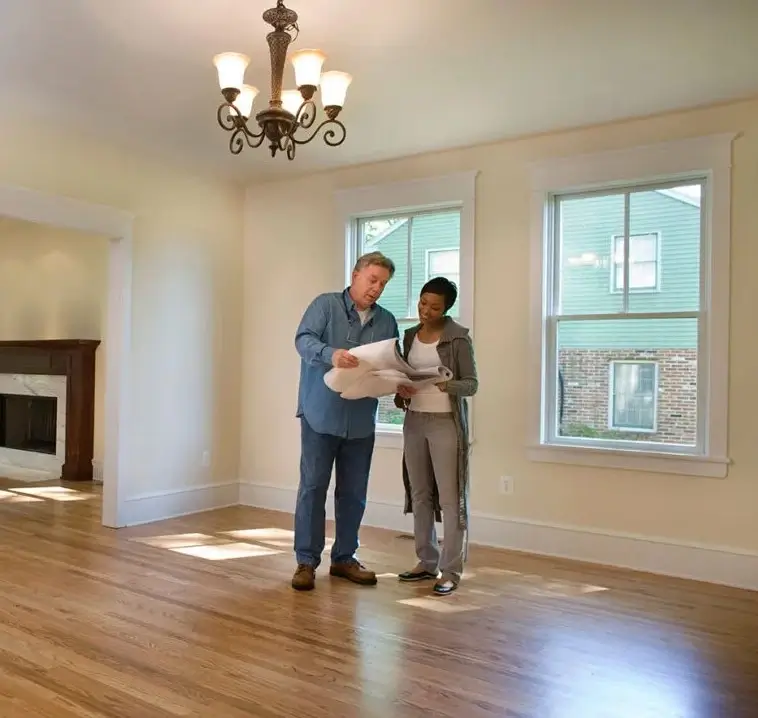

A home appraisal is an important tool to determine your home’s current market value when selling or refinancing, applying for a home equity loan, appealing a tax assessment, or taking out a reverse mortgage. A change in life circumstances like a divorce or bankruptcy may also warrant an appraisal.
The appraisal doesn’t require much from the homeowner other than scheduling and making the property available at the scheduled time. Here’s what happens in the appraisal process.
What to Expect From the Home Appraisal Process
Only a licensed appraiser can conduct an appraisal. This person will evaluate the property in three steps: an inspection, a comparables report, and an appraisal.
First, the appraiser will do a complete evaluation of the interior and exterior of your home. To evaluate the interior, the appraiser will do a walk-through of each room. This may include taking measurements, drawing diagrams, and taking photographs of different components of the home, including the roof, foundation, water heater, electrical and heating, bathrooms, other rooms, and structural parts of the property. The appraiser is trying to determine if these parts are structurally sound and in good condition.
Once the appraiser evaluates the property’s condition, they will evaluate comparable home sales in your area. An appraiser will not use values reported by Zillow or Trulia but will use an approach approved by the Universal Standards of Professional Appraisal Practice (USPAP). The U.S. Department of Housing and Urban Development (HUD) also has an appraisal manual outlining the requirements for an acceptable appraisal.
After the appraiser evaluates your home and the comparables, they will send an appraisal to you and whoever requested the appraisal (lender, tax authority, or an attorney). You and the person who requested this evaluation can see the data the appraiser used to determine the value of your home.
Appraisals With a Reverse Mortgage
The Federal Housing Administration (FHA) requires an appraisal for a reverse mortgage loan. In some instances, the FHA may require a second appraisal. This usually occurs if the appraisal is inadequate or overstates the home’s value. The lender will use the lower of the two appraisal values for the reverse mortgage calculation.
An independently selected licensed appraiser conducts appraisals. In case you need two appraisals, these will be performed by two different companies and appraisers. An appraisal is usually valid 120 days from the date the appraiser inspects the home, and in some cases, a 30-day extension may be granted.
How Much Will It Cost to Get a Home Appraisal?
The cost of an appraisal will vary depending on the home’s size, location, condition, and age. Expect to pay $500 or more for an appraisal. The cost will vary state by state, and if the appraiser finds that repairs need to be completed, there is a follow-up fee for reinspection of the property. These are fees that must be paid upfront to the appraisal management company. If you are concerned about the cost of the appraisal, be certain to ask in advance for a quote.
What Can the Homeowner Do to Prepare for An Appraisal?
You can proactively secure the best appraisal for your home by addressing obvious repairs like:
Check your roof. Ensure the roof is structurally sound and doesn’t have structural or water/fire damage.
Provide unobstructed access to your attic and crawl space. According to FHA requirements, an appraiser must visually inspect these spaces.
Assess your foundation. Determine if the foundation is in good condition and has adequate grading to prevent moisture from entering the basement foundation.
Check your water heater. The water supply should be sufficient, and it must meet local building codes.
Scan your rooms. All rooms must have accessible points for exiting in case of fire; walls should not have cracks or holes; windows can open, close, and lock; and exterior doors should properly open and close.
Check your bathrooms. The septic system should be functional, major plumbing problems should not be present, and a sink, shower, and toilet should be in working condition.
Do a utility check. All utilities must be turned on during the appraisal, electrical outlets must be operational, no exposed wiring should be present, and the heating system must work.
Assess the exterior condition. Double-check that there is no active termite or pest infestation, rotting exterior wood, broken fencing, or chipping paint. Also, ensure the swimming pool is filled, the pump works, and no defective conditions are present.
Addressing these concerns could prevent an appraiser from requiring repairs or asking that you conduct a second appraisal. Also, note that the way you calculate the value of your home may be significantly different from how an appraiser is required to evaluate what your home is worth.
Rights of Homeowners Who Don’t Feel They Received a Fair Assessment
If you’re unhappy with the appraiser’s assessment, you can object to the appraisal. Homeowners can request a reconsideration of value if three recent comparable home sales fairly represent the value of the home instead of what the appraiser used. The appraiser must review this information and explain why they did or didn’t use these comps in the appraisal.
This article is intended for general informational and educational purposes only and should not be construed as financial or tax advice. For more information about whether a reverse mortgage may be right for you, you should consult an independent financial advisor. For tax advice, please consult a tax professional.
